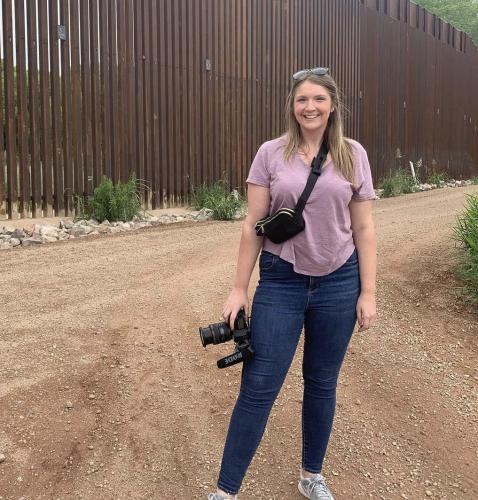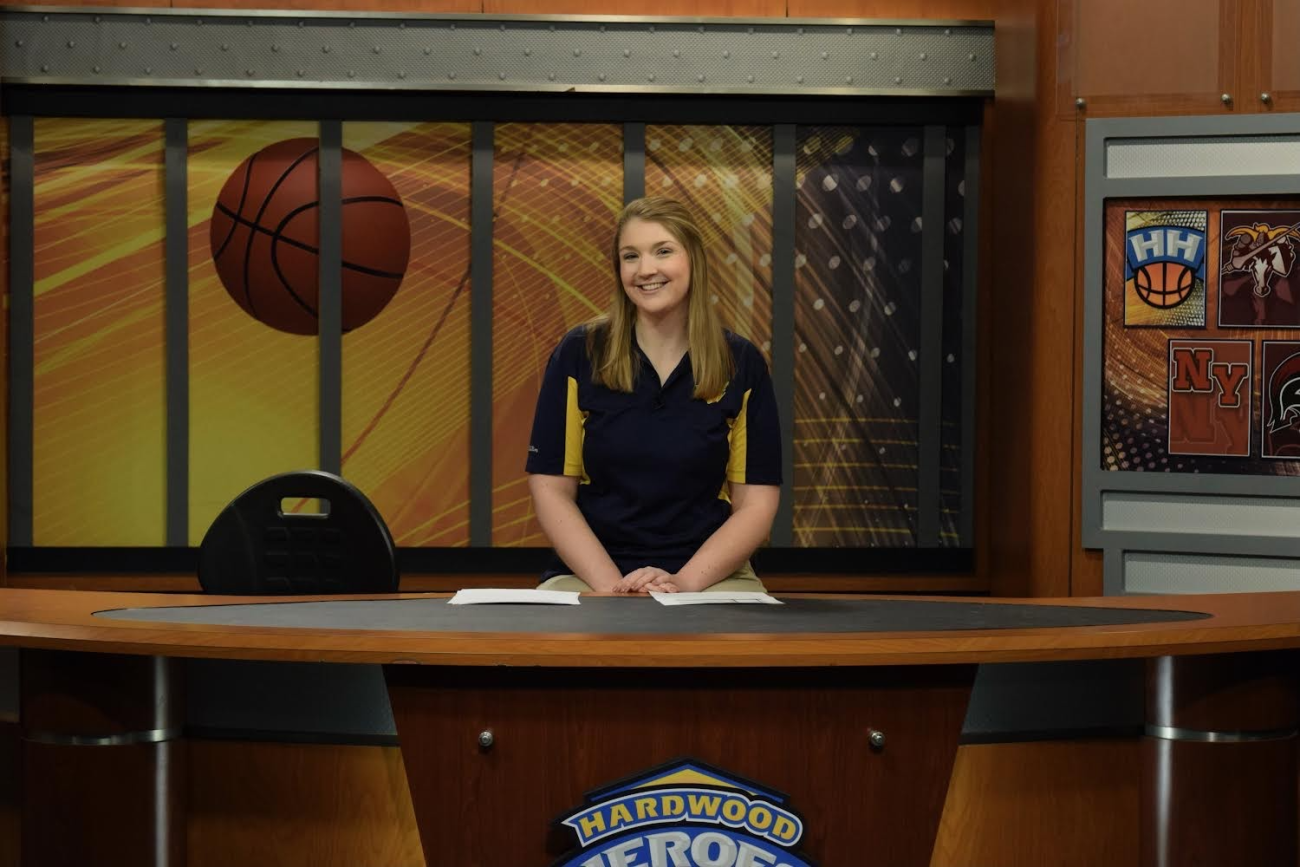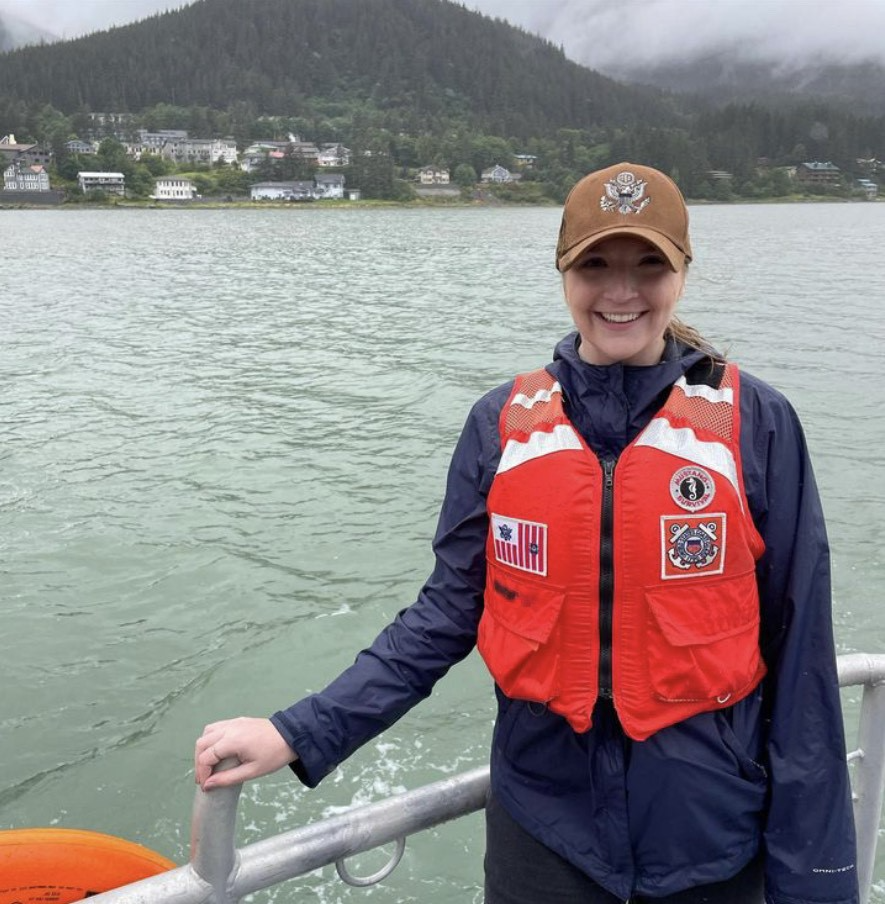
How WOUB and internships launched one alumna’s career as a digital manager for a congressional committee

During one week in August, Scripps alumna Samantha Wiesneth (BSJ ’21) was in Alaska learning about challenges facing the U.S. Coast Guard. Earlier that month, she documented the southern border in Arizona.
Two years after graduating, well-traveled Wiesneth is now a digital manager for the U.S. House Committee on Homeland Security, creating content for social media platforms, hearings and work by the congressional committee. Immediately after graduating in 2021, she moved to Washington, D.C. to work for U.S. Senator Steves Daines of Montana. As a student, Wiesneth completed internships at the White House Office of Digital Strategy (2019) and news outlets in Chicago.
Scripps alum Ken Klein caught up with Wiesneth to learn more about her training at Ohio University, her path to Washington and her advice for people interested in congressional staff jobs.
Klein: Since graduation in 2021, you’ve worked for a U.S. senator and now the U.S. House Committee on Homeland Security. How did you open the door to jobs on congressional staff?
Wiesneth: It’s all about getting your resume out there. Prior to graduation, I knew that I wanted to work on Capitol Hill (for Congress), so I started to reach out to congressional staffers for advice and to build my network. My resume was being passed around by the time I graduated, and I received a call from Senator Daines’ office about a press assistant position.
Klein: As Digital Manager for a congressional committee, describe your job.
Wiesneth: I handle all things creative. I do all the videography and photography for the committee, as well as run our social media accounts, create graphics and floor charts, and design one-pagers. I always say I have the fun job.
Klein: Your high school, west of Chicago in Geneva, IL, is 400+ miles from Athens. What drew you to Ohio University?
Wiesneth: I had a very different experience touring Ohio University than I did at any other school. The faculty and students were so friendly and happy to answer my questions and help with directions. I loved the campus and was excited about how easy it was for freshman journalism students to get involved with WOUB right away. OU was the only school I visited that felt like home.

Klein: On campus, you spent plenty of time at WOUB, including on camera. Is your education/college training relevant to your job duties on congressional staff?
Wiesneth: At WOUB we learned to be multimedia journalists (MMJs), so we were always working on our videography, photography, editing and writing skills, as well as being on air. I apply each of those skills to my job every day. I also think that working in broadcast helps students learn how to tell a compelling and concise story through video, which has helped shape the content I produce for the committee.
Klein: Any tips/advice for others considering jobs on congressional staff?
Wiesneth: Put yourself out there! Start building your network by reaching out to congressional staffers, especially Bobcats. It’s also very beneficial to intern either in D.C. or in a district office of a Member of Congress. Good interns are often hired as full-time staff after they graduate.

